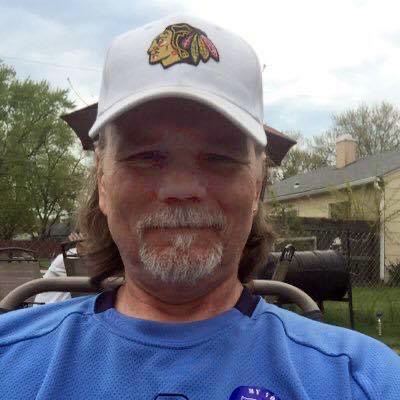AARP Hearing Center


It’s normal to feel anxiety in response to stressful life events, but sometimes that worry or fear grows more intense and persistent. Rather than a temporary feeling, it can become a lasting sense of dread that interferes with daily life — signaling a possible anxiety disorder (which is treatable).
Some anxious people, though, will have a full-blown panic attack — a frightening experience in itself that commonly includes alarming symptoms such as heart palpitations, sweating, trembling, shortness of breath, chest pain and nausea.
Nearly 5 percent of adults experience a panic disorder at some time in their lives, according to the National Institute of Mental Health. Women are more likely to report panic attacks than men.
Because a panic attack can look and feel similar to a heart attack, be sure to get checked out by a medical provider if you’re not sure what you’re experiencing, says Robert Roca, M.D., chair of the American Psychiatric Association’s Council on Geriatric Psychiatry and a psychiatrist at John Hopkins Medicine. “Typically, it comes out of the blue, so people have trouble interpreting it as an anxiety symptom,” he adds.
Since panic attacks feel different to different people, AARP asked six adults who have had them to describe what their attacks feel like, and to share what helps them cope.
"It's as if a vice is squeezing me.”


Anita Lesko, 61, Pensacola, Fla.
Anita Lesko has always been a germaphobe, so her anxiety started to build when she first read about the coronavirus in early 2020.
A certified registered nurse anesthetist (CRNA), Lesko knew she was at higher risk of exposure because of her job administering anesthesia to patients before surgery. When she began hearing about the nationwide lack of personal protective equipment for health-care workers, Lesko really began to worry.
"The prospect of going to work, getting exposed and ending up on a ventilator or dead — that's what pushed me over the edge,” she says.
One morning in March, when she was between patients at the hospital, Lesko developed a deep feeling of impending doom. She began to hyperventilate, her heart started racing and she broke out in a sweat. Pressure began building in her chest.
"I got a gripping sensation in my whole chest and throat area, as if a vice was squeezing me,” she said. “Then I started shaking literally to the core of my body.”
Lesko asked to leave early and fled to her car. She collapsed into the driver's seat and burst into tears.
"I was just sitting there trying to talk myself out of it, and trying to make myself breathe normally,” she recalls.
It took about 30 minutes before she was calm enough to drive. When Lesko got home, she was so exhausted she had to sleep for a few hours before she could do anything.
Lesko has had many more attacks since that day, and has since been diagnosed with PTSD and extreme anxiety. She hasn't been able to go back to work.
How she copes: Lesko is still struggling with how to manage her panic attacks. She is reluctant to take medication, but she is seeing a therapist through telemedicine.
Lesko says the best advice she has received is not to fight the attacks, because that just makes them worse. “When one comes on, I take a deep breath and focus on just letting it happen, letting it run its course,” she says. “And that actually helps.”
"I knew something terribly wrong was happening.”


J.T. Lewis, 58, Charlottesville, Va.
One morning almost 20 years ago, J.T. Lewis hailed a cab because she was late to work. As she settled into the back seat, Lewis noticed the car seemed unusually hot, dirty and cramped. The driver's seat was so far back it seemed to be crushing her. She felt sweaty and light-headed.
"Suddenly, I couldn't breathe,” Lewis recalls. “There was this crushing chest pain. I knew something was terribly wrong. Was I dying?"
The attack subsided after a few minutes, but Lewis was so shaken she had the driver drop her at her physician's office. After a battery of tests, the doctor told her there was nothing physically wrong with her.
A few weeks later, Lewis, who frequently traveled for her job as a lawyer, had just buckled into first class on a plane when it happened again. The pressure in her chest. The feeling that she couldn't breathe. Sweaty and pallid, she asked the flight attendant for some water.
The flight attendant took one look at her and instead had the pilot return the plane to the gate, so Lewis could get off. “I was frustrated, confused and humiliated,” Lewis said. “I began avoiding business travel."
After that, the panic attacks started happening more often. In the short run, medicine quelled her symptoms: Her doctor prescribed daily beta blockers plus Xanax for the moments when she felt an attack coming on (for example, before she got on a plane).































































More on Health
Beyond Shyness: What to Know About Social Anxiety Disorder
The symptoms and causes of this common condition, plus how it's treated
How to Find the Right Therapist
Whether your mental health needs feel pandemic-specific or not, help is available
Meditation Is Good for Your Physical Health, Too
Breathing exercises and other calming practices can reduce hypertension, pain and more